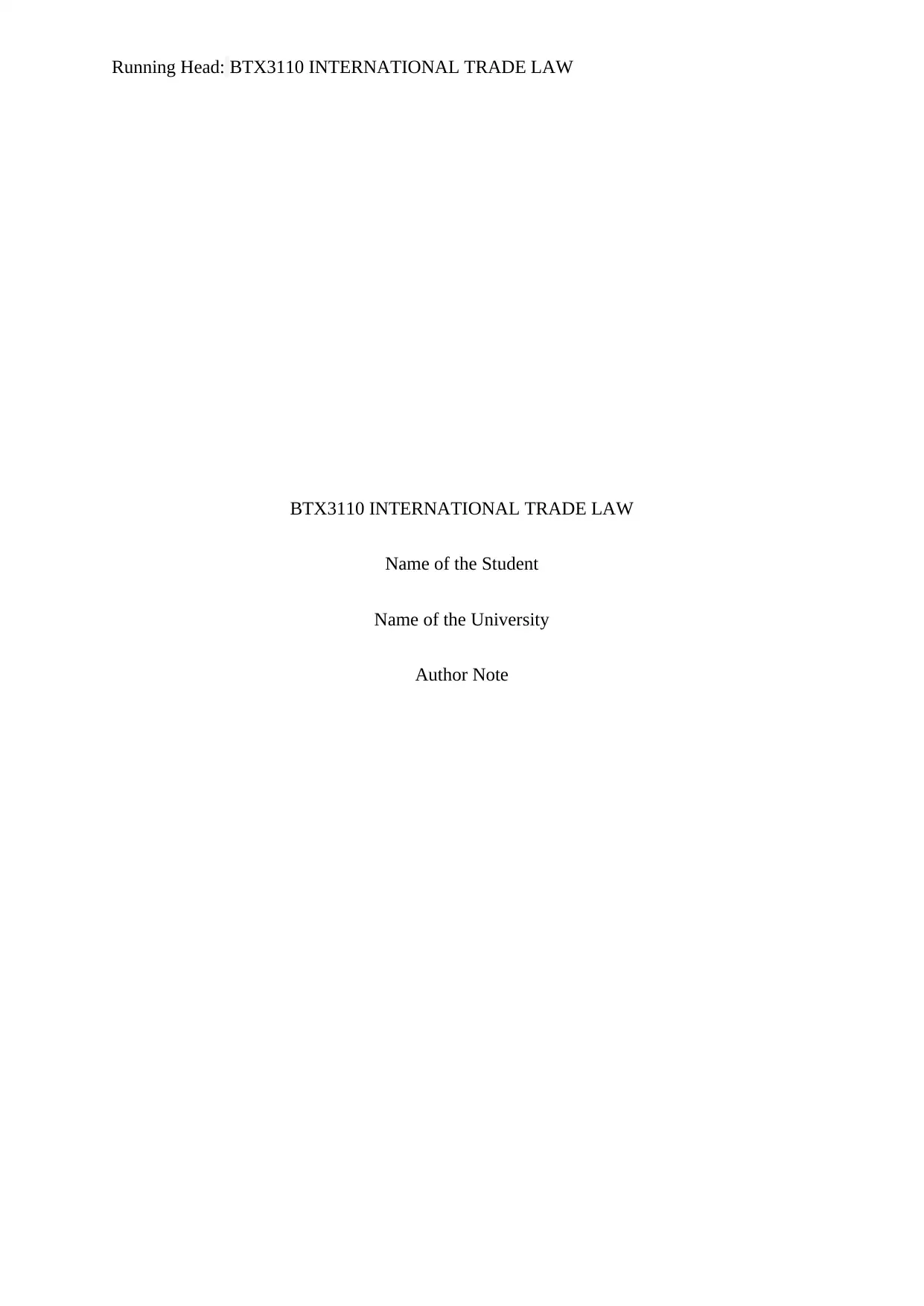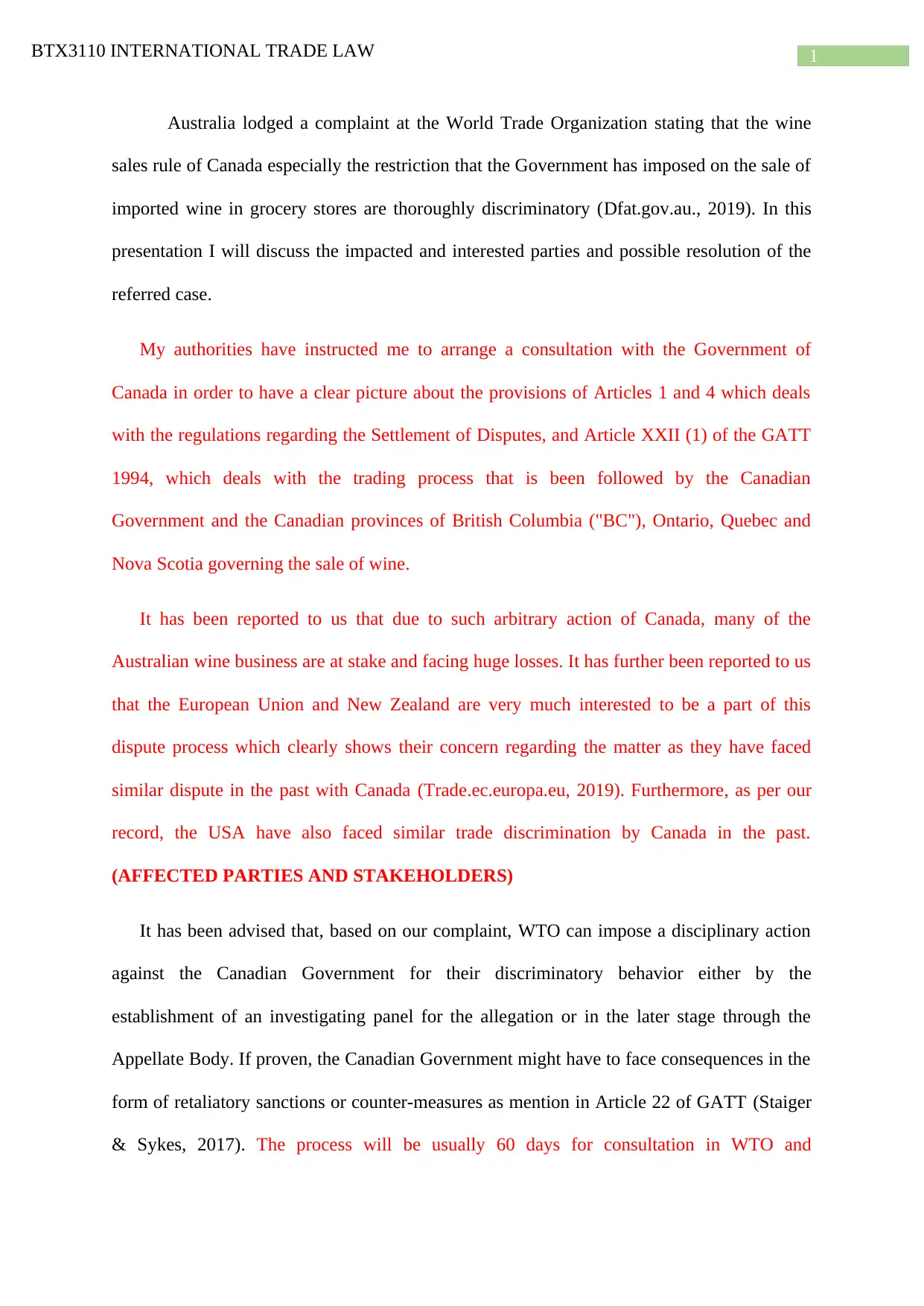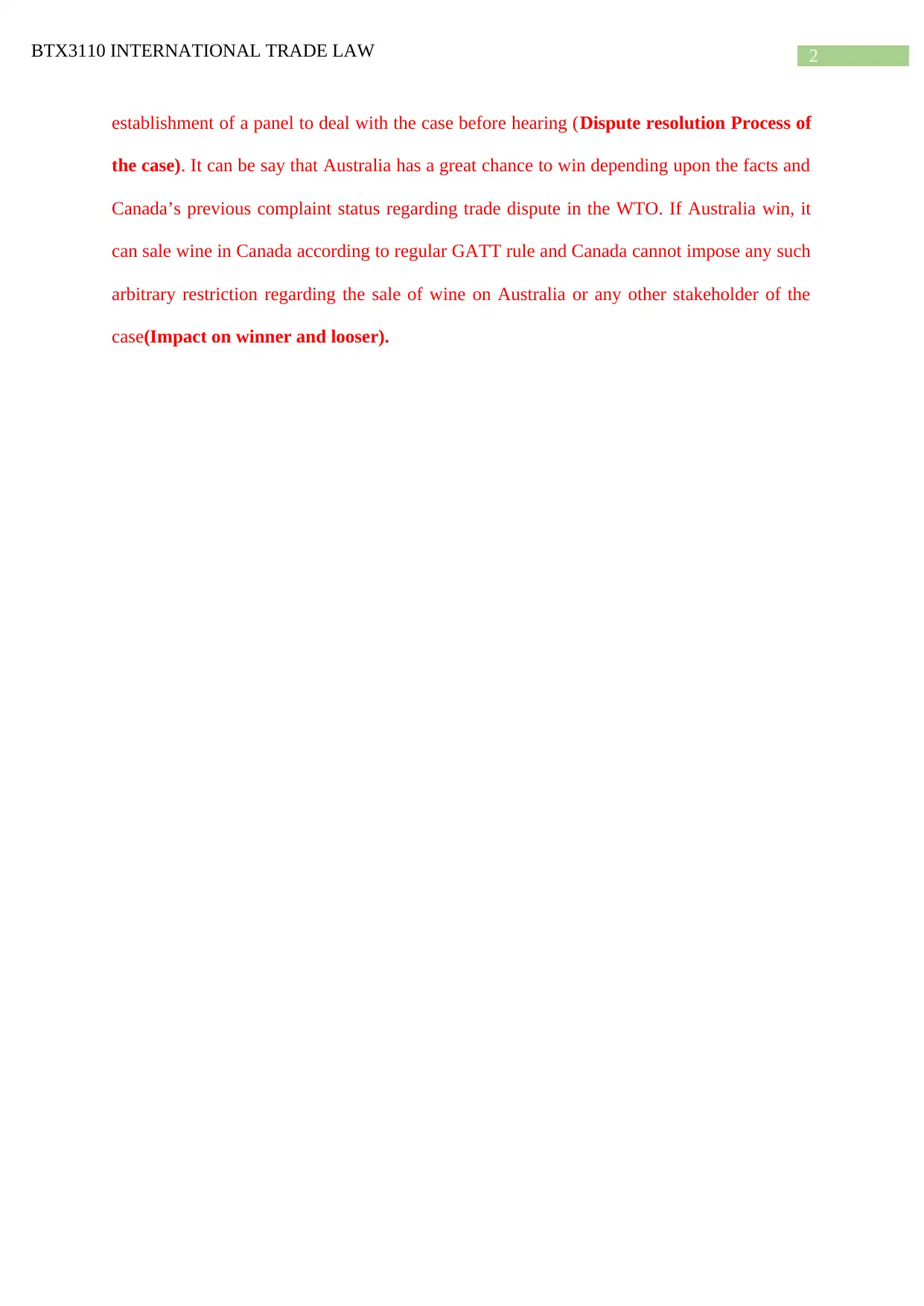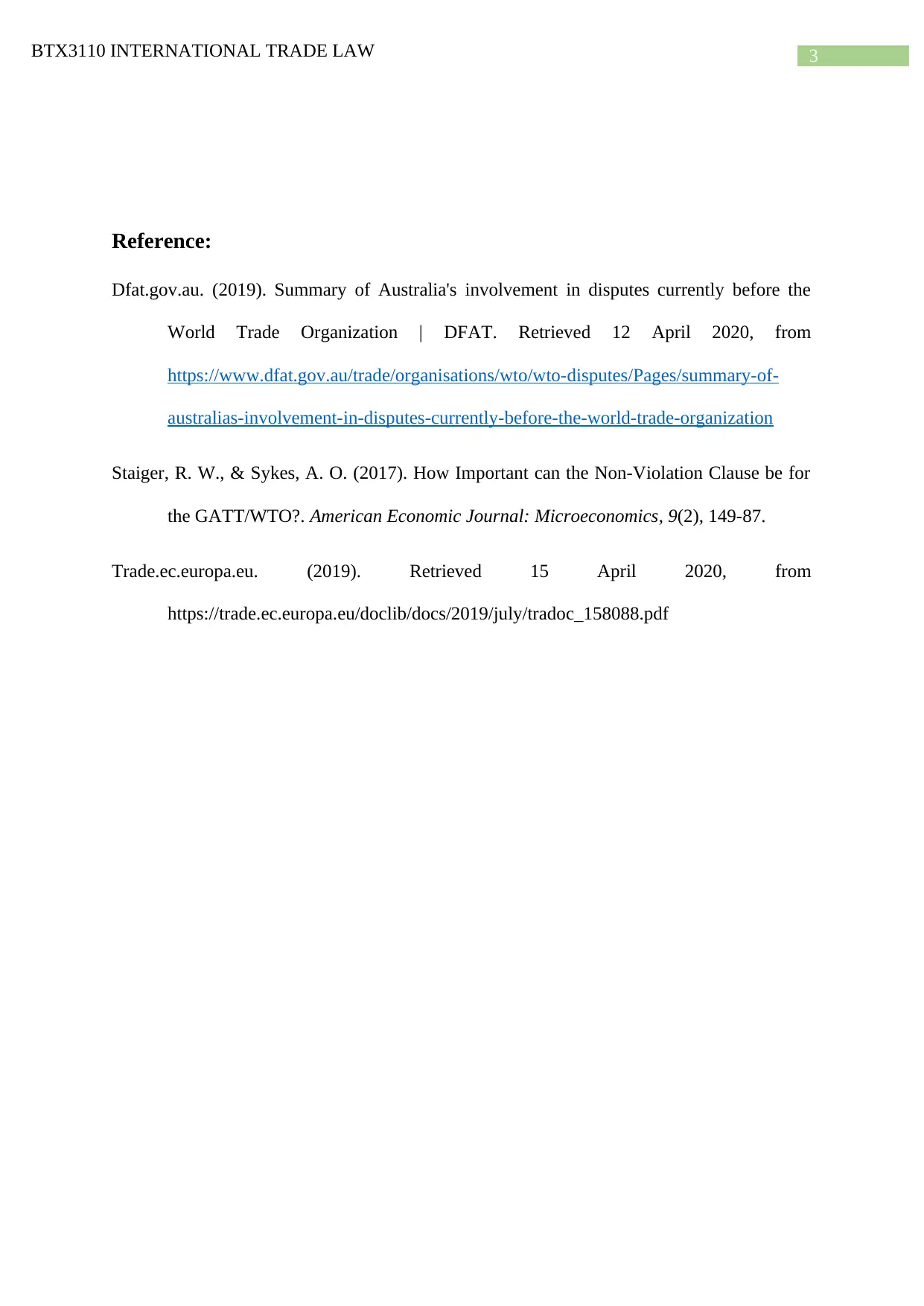Monash University, BTX3110: Trade Dispute Presentation
VerifiedAdded on 2022/09/18
|4
|561
|28
Presentation
AI Summary
This presentation analyzes the trade dispute between Australia and Canada concerning discriminatory wine sales regulations. Australia alleges that Canada's restrictions on imported wine, particularly the requirement for foreign wines to be shelved at the back of stores, are discriminatory under the WTO's GATT 1994 articles. The presentation outlines the affected parties, including Australia, Canada, the European Union, New Zealand, and the USA, and discusses the potential dispute resolution process within the WTO. It highlights the possibility of Canada facing sanctions if the allegations are proven. The presentation concludes by emphasizing Australia's potential to win the case and the implications of such an outcome, including Canada's obligation to remove the discriminatory restrictions. The presentation references relevant WTO documents and scholarly articles to support its analysis.
1 out of 4





![[object Object]](/_next/static/media/star-bottom.7253800d.svg)